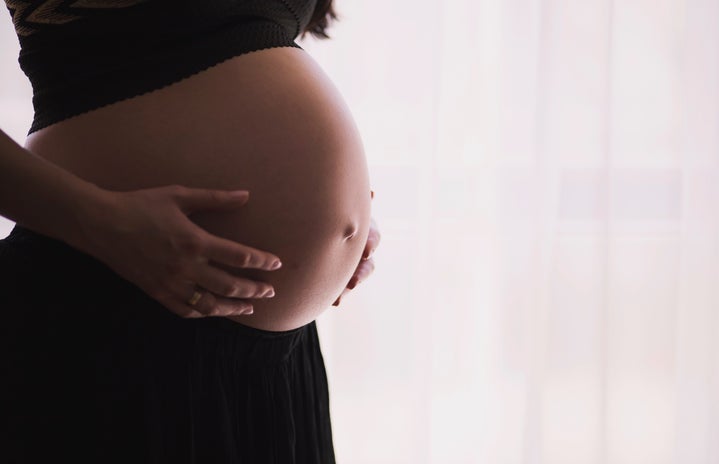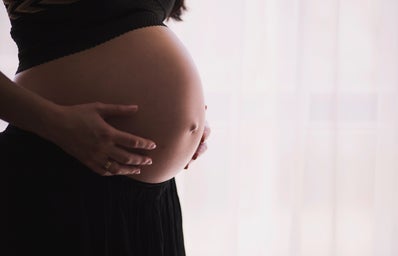“Why don’t you want children?”: this is a question I’m frequently asked when I share my decision to be child-free, after the topic of ‘having children’ pops up in conversation. Oftentimes it comes from an open-minded place of genuine curiosity; other times incredulous confusion, as though the idea that a woman wouldn’t want to ‘fulfil her biological function’ in this world is a personal affront to them.
Children can be cool – I would know, having worked with them for the last nine years in various capacities, the longest (and still currently) as a private tutor and formerly as a live-in au pair (essentially a nanny). I’ve waited in playgrounds with other children’s parents to collect them from school, taken them to after-school clubs across town, cooked them dinner and read bedtime stories before putting them to bed.
But my experience while working as a live-in au pair for five children across two different families, positive and educational though it might have been, only served to consolidate an unwavering decision I made eleven years ago as an eight-year-old: that I never want to have my own children. Why? I’ll give you five reasons.
1. I know that I wouldn’t enjoy being a parent
Religion-fuelled societal expectations put pressure on women across the world to have children. However, did you know that single, child-free women are not only the ‘happiest people on earth’, but also are ‘more likely to live longer’ than those with children and/or spouses? Some might view the following perspective as selfish, but I won’t apologise for my number one priority being my happiness and well-being rather than sacrificing those two things by having a baby.
While children can be cute, from past experience I know that I don’t enjoy the day-to-day tasks of raising a child; the only part I would probably enjoy would be tutoring them academically, which I’ve heard becomes an impossible task when it’s your own kid. Therefore well-educated parents (those who can afford it) end up hiring private tutors to teach their children.
2. The endless sacrifices: time, money, health, happiness, career ambitions, mental health, relationships… the list goes on
One only has to search into Google: ‘The girl with the list TikTok’ to read about some of the sacrifices made, primarily by women, during pregnancy, childbirth itself, post-partum, and the following years of a child’s life. The ‘girl’ in question ran the TikTok account ‘yuniquethoughts’ and went viral after making a video about postpartum bodily changes and hundreds of other ‘reasons not to have children.’ With the most common and well-known cons of childbirth including pain, postpartum depression, and many sleepless nights, among the worst of these on the list are:
- ‘Your legs can swell up to the size of two potato sacks’ – Postpartum Swelling;
- ‘Epidurals can go wrong and you can die’;
- ‘Gain a child, lose a tooth’;
- ‘You can go blind’;
- ‘You can rip your clit’;
- ‘Your nipple can fall off’;
- ‘You can break your tailbone if you push too hard’;
- ‘The baby might die’;
- ‘You might die’ – and according to the Guardian, ‘Women in the UK are three times more likely to die around the time of pregnancy than those in Norway.’
Now let’s talk about the financial sacrifice – the average cost of raising a child in the UK in 2022 (on bare necessities, not including luxuries such as gifts or hobbies) ranged from £150,000 to £200,000; £157,562 for couples and £208,735 for lone parents. A woman would also not be able to work the same hours as she did before pregnancy and might have to reduce the length of her working week to work part-time. This is unless she can afford full-time childcare to drop off and collect the child from nursery/school and to look after them in the evenings. Either option would result in a loss of income for the mother in addition to the net expense of raising a child.
Further to this, women-led childcare can worsen the pre-existing housework gender gap in many families. Professor Anne McMunn, who led a 2019 University College London study into this housework gender gap, found that ‘women do more housework than men in 93% of British households, even when both parties are working full-time.’ McMunn described the housework, cooking and caring duties undertaken by women in these families as a ‘second shift for women’ on returning home from work. So, not only are women typically expected to sacrifice their working hours to look after their children, even if they eventually return to full-time work, they still end up being left with a greater burden of both housework and childcare responsibilities.
Instead of leaving the workplace to look after a house and children, or even cutting down my work hours to part-time, I want to be free to travel all over the world during my holidays, to succeed in my career, and to primarily focus on my relationships – my partner, my friends, and family. In my opinion, all of this is wholly incompatible with having a child under the age of 35. Further, after thirty-five there is a ‘higher risk of pregnancy-related complications’ for both the mother and the baby. Even with ‘egg freezing’ (mature oocyte cryopreservation) being available to women who want to have children later on in life, I personally would be more inclined to adopt a child and make a difference in at least one person’s life than bring a new person into the world for no particular or good reason.
This is further supported by the fact that having children often results in the end of previously successful and loving partnerships. This phenomenon was described in the Wall Street Journal article entitled ‘Here Comes the Baby, There Goes the Marriage’, which declared that ‘within five years after the birth of a first child’, over 40% of couples will separate or divorce, usually with the woman wanting to leave these relationships.
3. Upbringing
Meanwhile, on a more personal level, myself and others I know who experienced challenging childhoods and/or difficult relationships with our parent(s) tend not to want children of our own. Those that do, however, tend to make the decision after much self-reflection and with the intention of ‘breaking the cycle’ of abusive parenting, and therefore tend to make very good parents to their children.
4. The green lens: having children is officially bad for the environment
A Swedish study published in 2017 found that having one fewer child per family could save approximately 58.6 metric tons of carbon each year in developed countries, while the authors of a study conducted by Oregon State University in 2009 found that ‘having one child adds 9,441 tonnes of carbon dioxide to the carbon legacy of each parent; over five times their own lifetime carbon emissions’. This topic has been widely discussed, with the Guardian writing an article on the subject entitled: ‘Want to fight climate change? Have fewer children.’ For me, this is just another reason for why one might not want children.
5. There’s already more than enough of us
Last but not least, the population has been rising exponentially since the nineteenth century. Relatively recently, on 15 November 2022, the world population surpassed eight billion. In short, it’s not like we’re the last of humanity and there’s a pressing need to reproduce in order to save our species – if anything, it’s the opposite situation, in which there are too many of us. Humanity is expanding its non-renewable resources and taking this planet for granted.
Moreover, why would we want to bring kids into this world with the way it is now? To quote CNBC, ‘Scientists’ increasingly bleak outlook for the future of the planet is putting more and more people off having children.’ With the tensions between Russia and the West building each day and rising sea levels and wild-fires caused by climate change occurring across the globe, what kind of world would we be bringing our kids into? As such, it makes more sense to me to adopt a child who is already here rather than to create a new one.
Written by: Joanna MacInnes
Edited by: Joanne Spence-Thomas


